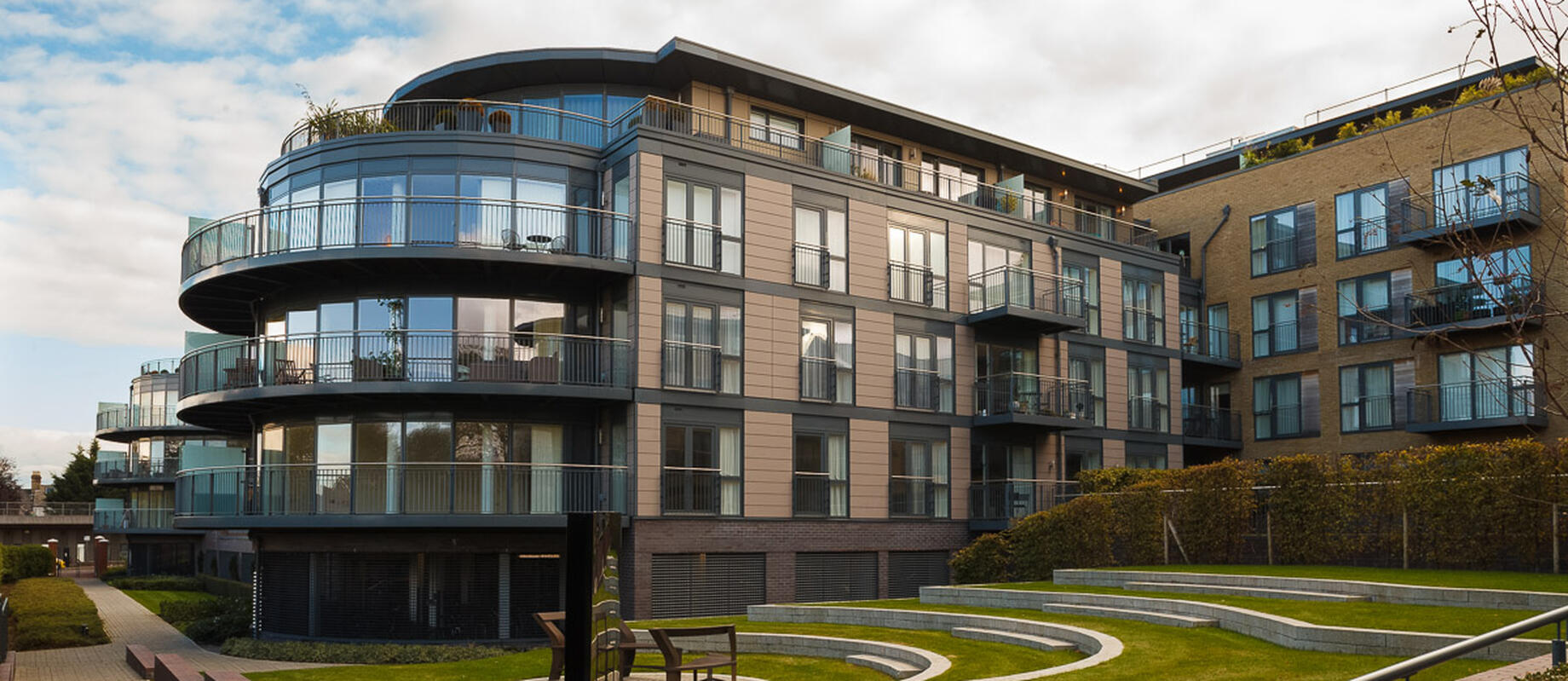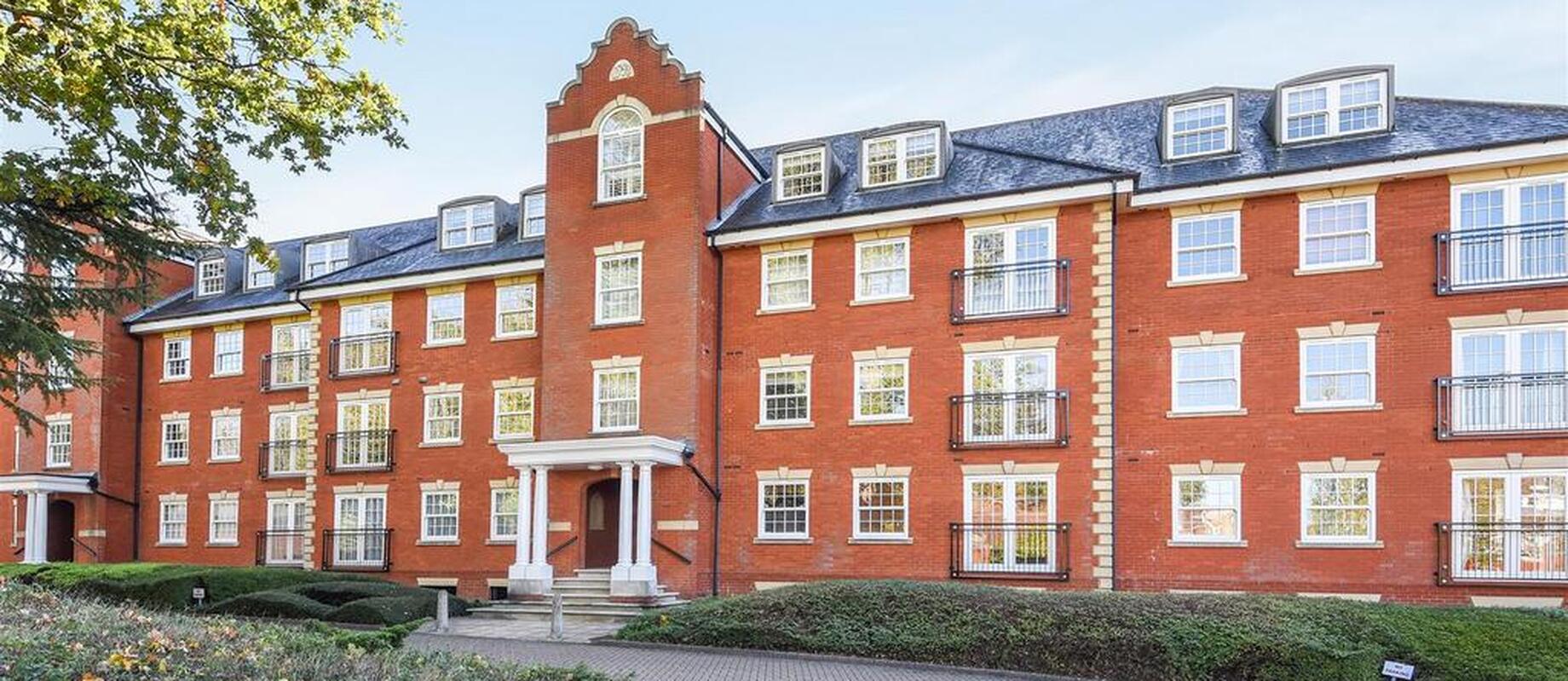There are many different ways you can get involved in the stewardship of your community. That can be through a more formal role or on a more ad hoc basis supporting community events from time-to-time.
Here we explore three of the more commonly-found community groups: Residents’ Management Companies; Residents’ Associations, and Steering Groups. It can be difficult navigating how each of the groups works, the role they play and how you can get involved - but hopefully this guide will be a starting place as you look to get more involved in your community. We talk to two of our clients about their experiences - Jane who is Secretary of the RA for her estate in Cambridge, and Steve who is an RMC director living in Wokingham.
Different roles you can take on
Where does your community’s managing agent fit in?
Top tips if you’re thinking of getting involved in a Residents’ Management Company, Residents’ Association or Steering Group
As the name suggests, a Residents’ Management Company (RMC) is set up as a Limited Company, registered with Companies House. It must have a director, normally more than one, and comply with certain legislation and regulations, such as filing its annual accounts. It is traditional that annual general meetings (AGMs) are held, where all members of the company are invited.
The responsibilities of an RMC can vary between different developments. You can see the specifics of what its obligations are by referring to the specific Memorandum & Articles of Association, along with the details contained in your transfer, deed of covenant and leasehold or freehold documents you should have received when purchasing a property or arranging your lease/transfer of part.
Generally, though, the RMC has an obligation to maintain the communal areas that benefit you, and your neighbours, using the funds created from everyone’s service charge payments.
Depending on the size and nature of your development, your RMC may be set up with developers - and/or other stakeholders - as directors. They may remain directors of the RMC, or there may be a plan for them to transition out of the role - to be taken over by residents, normally when building works are completed. When formal control is not yet passed to residents, in these cases, residents can still play a very active role - sometimes through Residents’ Associations or Steering Groups - and will often have influence over the RMC.
In other instances, the directors of your RMC may already be residents. In most cases, you and your residents will be members or shareholders of the RMC.
Occasionally, a managed development (e.g. where residents pay a service charge for the maintenance of communal amenities) will have a Community Interest Company in place of an RMC. Or it may simply be referred to as a ‘Management Company’. You’ll normally find the responsibilities, regardless of the name, are largely the same, but there may be nuances in how each is run and the legislation it has to abide by.
A Residents’ Association (RA) is a group of residents focused on making the place they live in better. Often, an RA will work to ensure all residents can effectively exercise their rights - as leaseholders or freeholders.
An RA may be referred to as a Community Association or Residents’ Group. Depending on what the goals of the association are, an RA can be formal or informal:

Jane's development is a community of 200 apartments and 10 townhouses where the RA was borne out of need, but soon became a driving force behind lots of successful community events:
"Our association was set up right at the beginning of our development, in 2013, when many residents united to ensure snags were rectified. There was a real common cause between us all, and that really started our community. We were an action group that liaised, on behalf of all residents, with developers.
Over time it all became quite a sociable thing when we met. We became great friends; having drinks, dinners, and gradually organising events. We started a book group quite early on, and would have quiz nights.
Once everything was handed over by the developer, we officially brought together the action group and the social organising, and I became Secretary of the RA. We work through common issues together but also organise a lot of great gatherings, like open garden events and parties.”
Steering Groups are a small number of residents, and other stakeholders - such as the managing agent or developer - focused on a particular issue or remedial works. For example, a Steering Group may be formed to resolve cladding issues.
In other instances, Steering Groups may represent different parts of a community or specific resident groups - for example, the north side of a large garden village development may have a Steering Group, and the south side another.
You may also hear of a Steering Committee. In some cases, this is another name for Steering Group, but it can also refer to a group that acts as a conduit between residents and the RMC - particularly when an RMC is developer-led. The committee may comment on RMC activity such as the service charge budget, works that are seen as desirable by residents, and recommendations of local suppliers, as just a few examples.
As there is a lot of variation in the different types of community groups, there will inevitably be variation in how each development is structured.
If you’re looking to get involved in an RMC, RA or Steering Group, then a good starting place would be to understand how the groups work in your community. In a lot of cases, there are multiple groups forming a bit of an ‘ecosystem’ within a community - each taking responsibility for different areas and actions.
You may even find that some groups haven’t been formalised with a name - but may still play an important role, either in influencing the community or RMC, or by engaging with particular activities.

There may be one or more directors on the board of an RMC, and where the numbers allow, each individual may take on specific responsibilities. For example, one director may be more heavily involved in the service charge budget and other financial responsibilities, whilst another may look after the selection of contractors who maintain communal amenities.
Being a director can be a hugely rewarding role - and a very important one. You’ll see the benefits it brings to your community, but it does also require ongoing time and commitment.
Working closely with other directors on the board to allocate responsibilities, and working with a trusted managing agent, will help significantly.
At Encore we always say everyone’s time is precious – RMC directors, our estate managers, residents. Everyone values clear communication that doesn’t waste time or cause frustration. In the role of Director it can be worth keeping this in mind.
Reducing the number of emails sent, appointing a single point of contact between different parties and ensuring meetings run efficiently are all good ways of maintaining effective communication as a director. Your time will contribute to a thriving community, but it’s important you keep a good balance.
Steve explained that he got involved with the RMC when he and his wife moved into an apartment they had previously rented:
“I’m passionate about where we live and protecting the value of our, and our neighbours’, properties - and supporting our community. As an RMC we’re always making decisions for the benefit of the whole complex - and that’s so important because, at the end of the day, what we do protects the value of the property. And we know what we’re doing works, because our development keeps proving to be a desirable place to live with strong property prices.”
Directors will often be responsible for communicating between key stakeholders in the community: the managing agent, contractors for maintaining the development, and residents as the service charge payees. However, the duties of directors should be most clearly laid out in your RMC’s Memorandum and Articles of Association, and more generally in The Companies Act 2006.

Alternatively, some RMCs have different sub-committees (sometimes also called Steering Groups) that will have different focusses. That may be something else you want to explore getting involved in.
For example, Jane explained: “The board wanted to formalise the structure of the RMC a bit more, so they created three sub-committees for different areas such as community and facilities, and grounds. The aim being that each sub-committee would feed information into the board, to help inform their decision-making.”
For Jane, being the secretary of her RA is a job that requires her time - but she emphasised that it’s all very worthwhile:
“It really helps if there’s a small group of committed people involved in the association. You don’t need to get bogged down by things if you’ve got a small group of people who can chip in. It will often grow organically from there.
What we’re doing with the association is really valuable. We’re building social capital. We wanted our community to feel something like a row of terraced houses, where people know each other, pop in and meet and chat together.”
Jane’s point about not getting bogged down is often a key point of success for RAs. If you’re considering a role as a secretary or member, discuss with the wider group responsibilities and clear points of contact. Having one person responsible for communication with your managing agent, for example, saves a lot of time looping different people in and conveying the same message multiple times. Speak to the existing group to understand how you, and your role, in the RA fits in. Then you’ll have a clear picture of how your time will be used.
Jane explained there are many different facets to her role in the RA:
“We used to have regular meetings but since Covid, they don’t happen quite so frequently. Though, during the pandemic, we really pulled together to help one another - the association helped to organise the collection of shopping and prescriptions, for example, for those shielding.
“In more normal times we organise all sorts of social activities: bulb planting around the development, boules, a book group, and we have a food bank we organise regular donations to. We also help to make sure the communal amenities are pleasant and well-looked after for everyone. For example, we have house rules and help to distribute notices, and have a newsletter that keeps everyone informed.”
Jane's development has an active RMC that works well in partnership with the RA, as she added: “We’ve been really lucky working with Encore as our managing agent, they’ve been able to help in lots of different ways and the RA being set up in turn helped to create the RMC. Many residents are involved in both. The result is that we’ve got an effective board, and the RA feeds into it; the board is very effective and it all works well together for the benefit of the whole community.”
Becoming a member of a Steering Group will very much depend on how your community structure works, and whether the Steering Group is a recognised group supporting the RMC, for example.
Often, members of the RMC or RA will also be heavily involved in Steering Groups, or they may require the Steering Group to report on progress with a particular project or focus. Steering Groups may also have a ‘lifespan’ - for example, once the project being worked on is complete, or if the issue is resolved.
You may want to become a part of a Steering Group if the aim of the group is something that affects you, you have previous experience of, you have professional knowledge of or if you’re particularly passionate about it.
Steering Groups will often meet on a regular basis, so you would be required to attend whenever possible. As with meetings for RMCs and RAs, Steering Groups should have a set minimum quorum to ensure the outcomes are valid – everyone's busy and it can be difficult to commit to all community meetings. Having a minimum quorum means things can still progress despite absences.
There’s a lot of strategic, financial and managerial responsibilities that come with running an RMC. As a result, many choose to work closely with a managing agent, like Encore, to ensure the RMC is compliant with all of its regulatory, legal and financial responsibilities. They will also play the vital role of Company Secretary for the RMC.
The managing agent will also be responsible for ensuring a schedule for maintenance works of communal areas and amenities is created and executed. The budget to fund these works will also be detailed in a service charge budget - showing how residents’ service charge will be spent to maintain and enhance their development.
The level of involvement from directors of the RMC with the managing agent will vary, depending on the level of work required, the size of the development, the extent of the communal amenities and any issues or significant changes being tackled.

Managing agents like Encore may also be able to support community activities and engagement, although this will be to a varying degree depending on what is included within the managing agent’s agreed services.
For example, managing agents will often have a lot of knowledge of communal amenities that can, or can’t be used, for community events. They’ll be able to advise on the allocation of funds for community engagement, activities and events, and offer guidance on health and safety, for example. This knowledge can be really useful to RMCs and RAs in particular.
When it comes to working with Steering Groups, the managing agent may be heavily involved where health and safety and legislation or regulation are concerned. For example, if a Steering Group is tasked with dealing with cladding issues, the managing agent would be able to advise on budget and sources of funding, along with what is required from a fire and building regulations standpoint. The managing agent will often also have experience and knowledge from other developments, which will be useful to the Steering Group.
The managing agent’s role is critical in ensuring the community continues to look its best, but it is also vital in helping RMCs, RAs and Steering Groups to run effectively.
If you’re keen to get more involved with your RMC, Steve - who has over a decade’s experience in the role of RMC director - suggests that you always keep great communication at the heart of what you do:
"Great communication with contractors, Encore - our managing agent, and residents is crucial. We don’t have written down SLAs but, regardless, we’re all clear on what’s required to make the estate function.
We always look to understand what we’re doing and why we’re doing it. Then we look for others to bring their thoughts and advice to the table: contractors might have an idea on one thing, Encore might make suggestions for something else.
Approaching things that way means we get the best expertise from each party. And then it’s down to us, as the RMC, to make decisions based on the facts available and the advice given.”
For Jane, as someone who has been involved with the RA from its beginnings to now, she suggests that having a common cause will galvanise people into action to help you achieve a goal:
"We had a very clear goal when we first started meeting as residents - which then went on to form the Residents’ Association. If you don’t have such a clear common cause, think about how you can create one - for example, could you do a fundraiser together to get something new the whole community could benefit from?
We also try to make sure that we’re enabling everyone in our community to benefit from the amenities we have. For example we’ve seen more and more young families making use of the beautiful gardens we have. So we’ve worked together to set up a procedure that means the space can be used for birthday parties too. That sort of project means everyone can see the benefit of where they live and their community."
However you decide to get involved in your community, speak to others who may already be contributing to the RMC, RA or Steering Group. They’ll have plenty of wisdom and knowledge to share.
There’s a lot to think about when it comes to getting involved in your development’s group or company: you’ll be in a key role of stewardship for your community and responsibilities will come along with that. You’ll need to dedicate time and energy to your role, but many will say it’s hugely rewarding too.